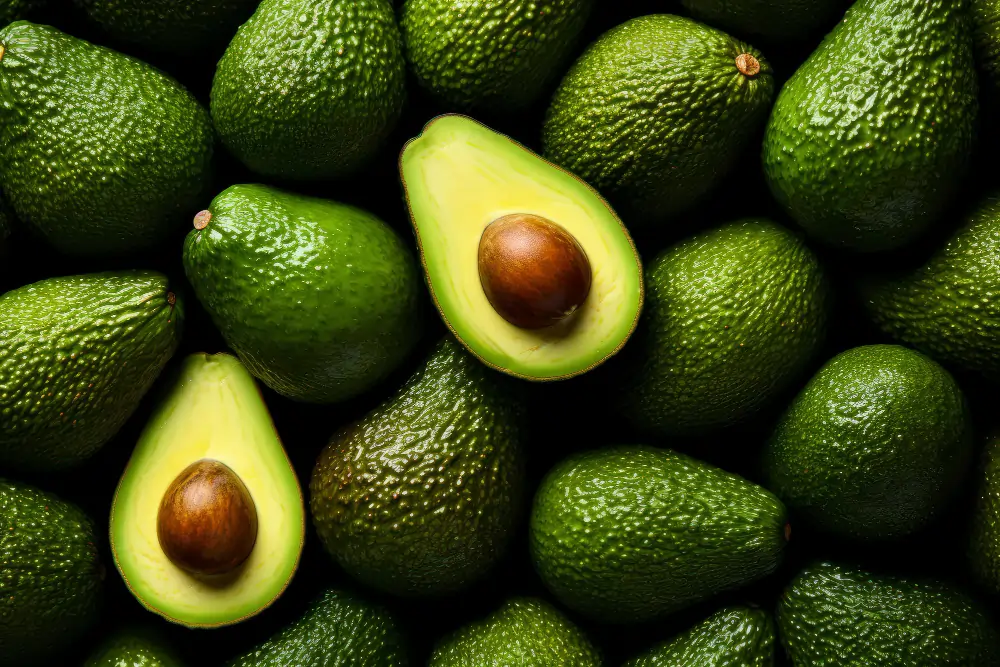In this article, we will explore the top 12 anti-inflammatory foods that you can easily incorporate into your diet. Inflammation is a natural response by our body’s immune system to protect and heal itself. However, chronic inflammation can lead to various health issues such as heart disease, diabetes, and arthritis. By including these anti-inflammatory foods in your daily routine, you can help reduce inflammation and promote overall well-being. Let’s dive into the details!
1. Turmeric: The Golden Spice
Turmeric is a bright yellow spice often found in traditional dishes and has been used medicinally for centuries. Curcumin, the active compound in turmeric, possesses powerful anti-inflammatory properties. Including turmeric in your diet can help alleviate symptoms of inflammation, such as joint pain and swelling.
2. Berries: Nature’s Antioxidant Powerhouse
Berries, such as blueberries, strawberries, and raspberries, are not only delicious but also rich in antioxidants. Antioxidants combat inflammation by neutralizing harmful free radicals in the body. Including a handful of berries in your diet can provide a flavorful and nutritious way to fight inflammation.
3. Leafy Greens: Nutrient Powerhouses
Leafy greens like spinach, kale, and Swiss chard are packed with vitamins, minerals, and phytochemicals. These green gems boast anti-inflammatory properties due to their high levels of antioxidants and fiber. Adding a variety of leafy greens to your meals can enhance your diet’s anti-inflammatory benefits.
4. Fatty Fish: Omega-3 Rich Delights
Fatty fish, such as salmon, mackerel, and sardines, contain high levels of omega-3 fatty acids. These healthy fats not only support heart health but also possess potent anti-inflammatory effects. Adding fatty fish to your diet a few times a week can elevate your body’s anti-inflammatory response.
5. Ginger: Spicing up Your Health
Ginger, commonly used as a spice, is renowned for its potent anti-inflammatory and antioxidant properties. The active compounds in ginger, called gingerols, reduce inflammation by inhibiting the production of inflammatory cytokines. Incorporating ginger into your diet can bring a delightful zing and promote a healthy inflammatory balance.
6. Extra Virgin Olive Oil: Liquid Gold for Your Health
Extra virgin olive oil is a staple in the Mediterranean diet, known for its numerous health benefits. It contains oleocanthal, a compound that impedes the activity of inflammation-inducing enzymes. Drizzling extra virgin olive oil over your salads and dishes can enhance their flavor while offering anti-inflammatory effects.
7. Nuts: Tiny Powerhouses of Nutrition
Nuts, such as almonds, walnuts, and pistachios, are loaded with beneficial nutrients, including healthy fats and antioxidants. Their high content of alpha-linolenic acid (ALA), a type of omega-3 fatty acid, contributes to their anti-inflammatory properties. Snacking on a handful of nuts can satiate your hunger while providing anti-inflammatory benefits.
8. Turmeric Tea: Sip Your Way to Wellness
In addition to using turmeric in cooking, you can enjoy its health benefits by sipping on turmeric tea. By steeping turmeric in hot water, you can create a soothing and anti-inflammatory beverage. You can enhance the flavor and add extra health benefits by combining turmeric tea with ginger, lemon, or honey.
9. Tomatoes: A Burst of Lycopene
Tomatoes are not only a tasty addition to many dishes but also a source of lycopene, a powerful antioxidant. Lycopene has been shown to reduce inflammation and protect against certain types of cancers. Incorporating fresh tomatoes or tomato-based products in your diet can introduce this anti-inflammatory nutrient into your meals.
10. Dark Chocolate: A Sweet Indulgence
Who said indulgence couldn’t be healthy? Dark chocolate, with a high cocoa content, is rich in flavonoids, compounds that exhibit anti-inflammatory properties. Consuming a small piece of dark chocolate as a treat can simultaneously satisfy your sweet tooth and provide health benefits.
11. Green Tea: Sip Your Way to Natural Healing
Green tea has long been cherished for its health-promoting properties. Its abundance of polyphenols, such as catechins, contributes to its anti-inflammatory effects. Drinking a hot cup of green tea can be a comforting way to relieve inflammation and promote overall well-being.
12. Garlic: A Flavorful Anti-Inflammatory Foods
Garlic does more than just add flavor to your dishes; it also offers potent anti-inflammatory benefits. Allicin, a compound found in garlic, interferes with the production of inflammatory enzymes, reducing inflammation in the body. Including garlic in your meals can spice up your plate and enhance your health.
By incorporating these 12 anti-inflammatory foods into your diet, you can take proactive steps towards reducing chronic inflammation, promoting overall health, and enjoying a variety of delicious flavors. Embrace these dietary changes for a healthier and more vibrant life!
FAQs
1. Are these anti-inflammatory foods suitable for everyone?
While these foods are generally healthy, it’s essential to consider individual dietary restrictions or allergies. Consult with a healthcare professional before making significant diet changes.
2. How much turmeric should I consume daily for its anti-inflammatory benefits?
Experts often recommend a daily intake of 500-2,000 mg of curcumin, the active compound in turmeric, to experience its anti-inflammatory effects fully.
3. Can I get the same benefits from supplements instead of whole foods?
Although supplements can offer convenience, it’s generally more beneficial to obtain nutrients from whole foods, as they provide a broader range of essential compounds.
4. How can I include more leafy greens in my diet if I’m not a fan of salads?
You can incorporate leafy greens into smoothies, stir-fries, and soups, or even bake them into crispy veggie chips for a delightful twist.
5. Should I consume all of these foods every day to fight inflammation?
While it’s not necessary to consume all these foods daily, it’s beneficial to include a variety of them in your diet throughout the week for maximum anti-inflammatory benefits.





 Afrikaans
Afrikaans Albanian
Albanian Amharic
Amharic Arabic
Arabic Armenian
Armenian Azerbaijani
Azerbaijani Basque
Basque Belarusian
Belarusian Bengali
Bengali Bosnian
Bosnian Bulgarian
Bulgarian Catalan
Catalan Cebuano
Cebuano Chichewa
Chichewa Chinese (Simplified)
Chinese (Simplified) Chinese (Traditional)
Chinese (Traditional) Corsican
Corsican Croatian
Croatian Czech
Czech Danish
Danish Dutch
Dutch English
English Esperanto
Esperanto Estonian
Estonian Filipino
Filipino Finnish
Finnish French
French Frisian
Frisian Galician
Galician Georgian
Georgian German
German Greek
Greek Gujarati
Gujarati Haitian Creole
Haitian Creole Hausa
Hausa Hawaiian
Hawaiian Hebrew
Hebrew Hindi
Hindi Hmong
Hmong Hungarian
Hungarian Icelandic
Icelandic Igbo
Igbo Indonesian
Indonesian Irish
Irish Italian
Italian Japanese
Japanese Javanese
Javanese Kannada
Kannada Kazakh
Kazakh Khmer
Khmer Korean
Korean Kurdish (Kurmanji)
Kurdish (Kurmanji) Kyrgyz
Kyrgyz Lao
Lao Latin
Latin Latvian
Latvian Lithuanian
Lithuanian Luxembourgish
Luxembourgish Macedonian
Macedonian Malagasy
Malagasy Malay
Malay Malayalam
Malayalam Maltese
Maltese Maori
Maori Marathi
Marathi Mongolian
Mongolian Myanmar (Burmese)
Myanmar (Burmese) Nepali
Nepali Norwegian
Norwegian Pashto
Pashto Persian
Persian Polish
Polish Portuguese
Portuguese Punjabi
Punjabi Romanian
Romanian Russian
Russian Samoan
Samoan Scottish Gaelic
Scottish Gaelic Serbian
Serbian Sesotho
Sesotho Shona
Shona Sindhi
Sindhi Sinhala
Sinhala Slovak
Slovak Slovenian
Slovenian Somali
Somali Spanish
Spanish Sundanese
Sundanese Swahili
Swahili Swedish
Swedish Tajik
Tajik Tamil
Tamil Telugu
Telugu Thai
Thai Turkish
Turkish Ukrainian
Ukrainian Urdu
Urdu Uzbek
Uzbek Vietnamese
Vietnamese Welsh
Welsh Xhosa
Xhosa Yiddish
Yiddish Yoruba
Yoruba Zulu
Zulu